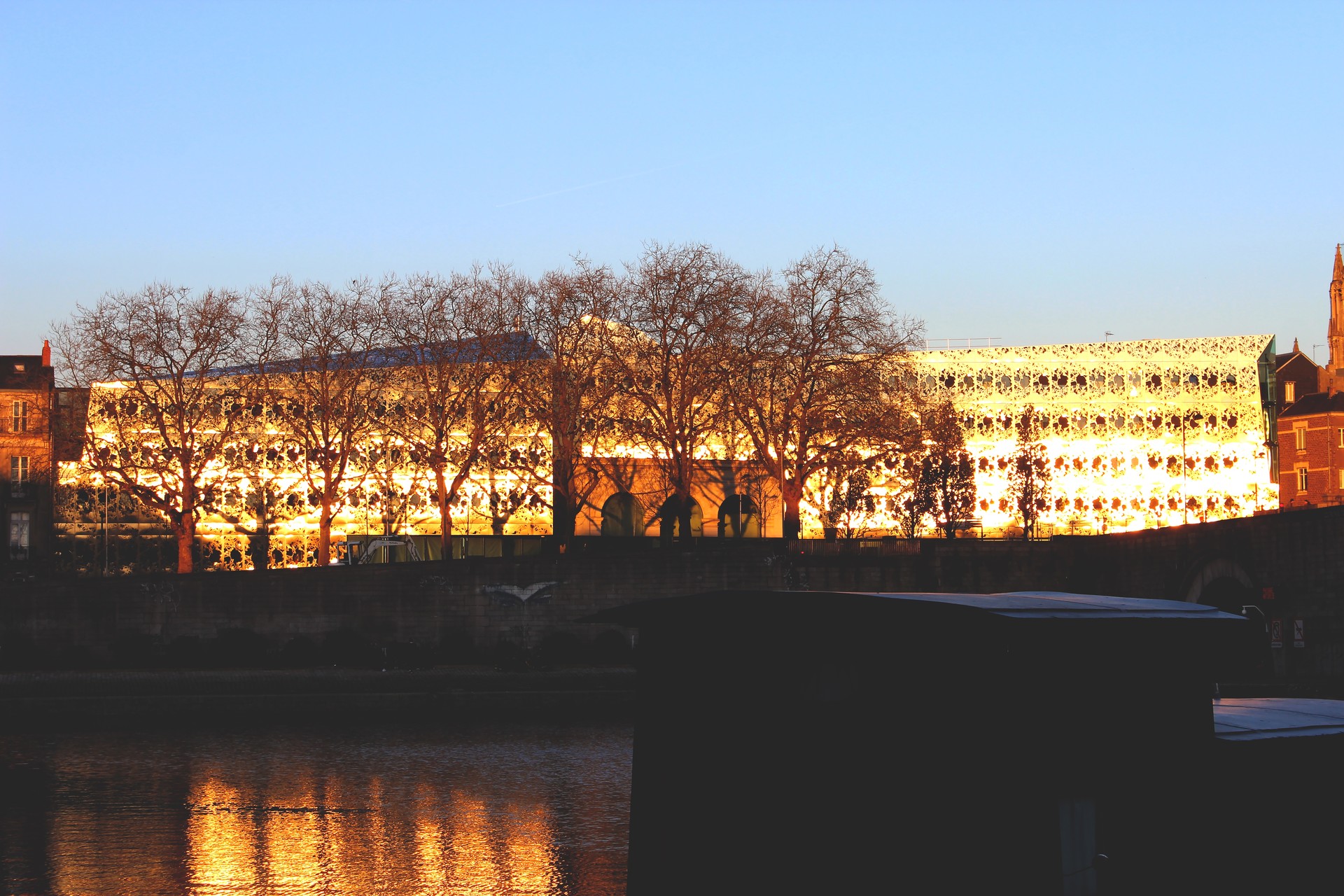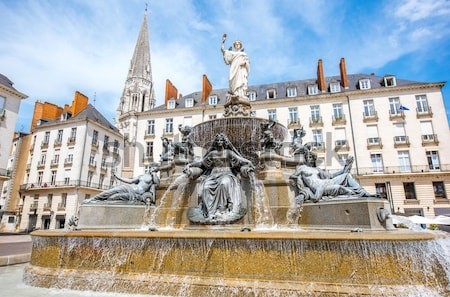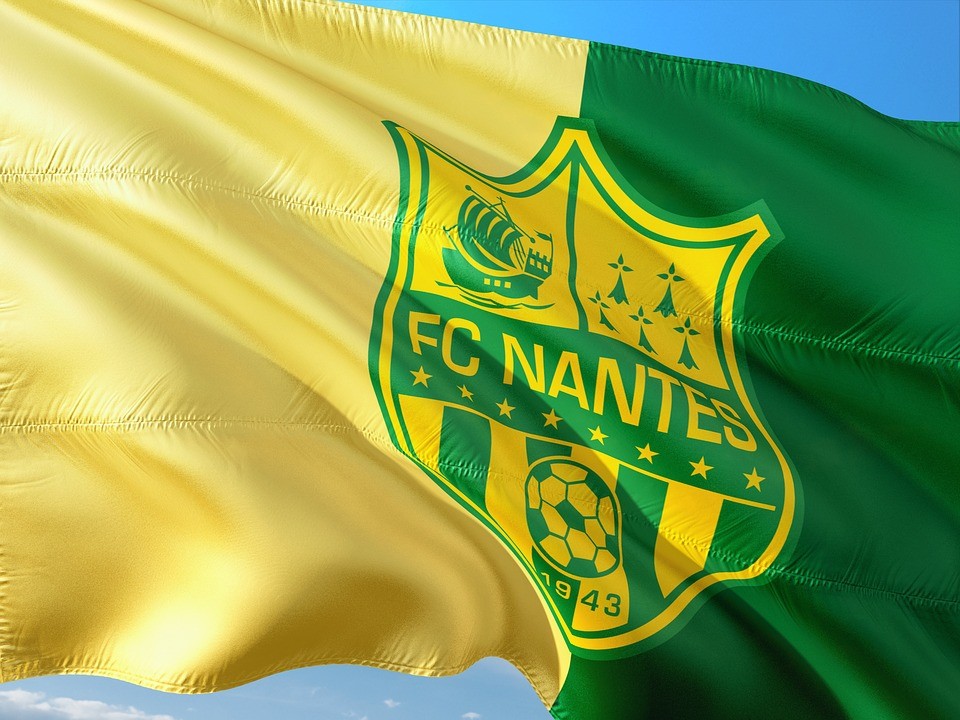Living for a year in Nantes
Why did you choose to go to Nantes, France?
The truth is that fate played an important part... I ended up in Nantes because the city which I put down as my first choice in my Erasmus application had also been chosen by lots of people with a better academic record than me (my first choice was Lille). But as a second choice, the fact that it was a very historical city and was in a good geographical location really appealed to me, so I could get to know all of Western France. Also, flights from Madrid to Nantes were quite cheap and they had several each week.

How long did the scholarship last? How much money did you receive to help you with living costs?
In my case, the grant lasted the whole academic year and altogether, I received a bit more than 2, 000 euros from my university and the Erasmus programme. Per month, it was something like 180 or 190 euros, as well as a sort of bonus towards transport to travel from Spain to France. The bad thing is that the grant was split in two, with one half at Christmas and one once you have finished the academic year, so really they don't provide you with everything towards what you're going to have to pay in France. Here, you can apply for another grant that the French government provide to students to help pay for accommodation (CAF), but I didn't receive it as I didn't fulfill one of the requisites. If I had wanted, I could have extended the grant longer by doing a work placement, for which you receive a lot more money. However, I kept this card under my sleeve so I could do an internship in the future, and I started doing an internship a year later.
What is the student lifestyle like in Nantes?
The truth is that it's quite good, although maybe it lacks something in terms of better nightlife. Nantes is a really quiet city, so the students usually come together and have flat or house parties, or even ones in university accommodation. There is the most atmosphere in the city at the weekends, and depending on which events are being held, you can see more or less a buzz on the streets, however overall it is a quiet city. Something that I really liked was how everyone made the most of the sunny days, as they were few and far between. Each time that there was good weather, especially in Spring, the students would go after (and some during) classes to gather on the grass, to drink and smoke, etc.
Would you recommend the city and the University of Nantes to other students?
Of course my answer is yes. But if what you are looking for is a big capital city where every weekend you can do something different, with lots of bars and clubs, Nantes is not the place for you. Really, it's a city that offers a mix of the calm of a small city and a little bit of the vibe of a big city. But considering my overall experience in Nantes, I believe that a lot of you will enjoy experiencing it first-hand.

Speaking of the university, it is quite well organised and the teachers are always ready to help international students in whatever they need. But saying this, don't expect a helping hand in exams because they take them quite seriously in terms of equality; and they don't make concessions for us compared to the native French people who are in our class. You have to go with quite a good language level, which is like a minimum of a B1 in all the different areas, with a B2 being recommended to be able to comprehend most of what they say in class. The locals here remind me of the Spanish people and those from the North of Spain, as at first, they are perhaps a bit shy and not very nice, but once they trust you, they'll help you with whatever you need, without hesitation. They're very down to earth, as they say here.
What is the food like there?
French food, or at least what they cook in the North East of the country, is very good. There are some dishes that you would have heard of, even if not by name, I'm sure that when you see it served you will know what I'm referring to. For example, the quiches, which are like pastries which they love to eat. They also eat a lot of vegetables, which is quite similar to what we eat in Spain, but I was not convinced by the way they made meat and certain types of fish, as they used butter to fry them and the taste is too greasy. They have dozens of different kinds of sausages and the dairy products are really good. A staple of French food is that wherever you are in France there are potatoes, I haven't eaten so many potatoes in my life! They come as a garnish with practically every dish, as well as mashed potato, which they also eat a lot of.

Photo of a quiche.
I used to eat in the canteen at the university halls, but sometimes I was lucky enough to go to dinner with French people, where they made traditional dishes; the equivalent of if they came to Spain and we would make them a Spanish potato tortilla. In the halls there was usually quite a lot of variety: they had a menu every day with 3 first courses and 2 or 3 second courses, bread, a dessert and water. In short, the Spanish definition of good food isn't French food, but it isn't awful and it isn't too weird for us.
Was it difficult to find your accommodation in Nantes?
So before coming and starting the academic year I had already been assigned a room in the university residence Berlioz; which is in the North of the city but not that far from the city centre. Almost everything was sorted by the University of Nantes, who were in this case my host residence, and the only thing that I had to do was to fill out a couple of hand-written application forms and send photos of my ID card, and of the letter which notified me that I had been accepted by the University of Nantes for this course. I met people who were staying in other halls, but they were all a lot more expensive and some were even further away from the city centre - but they were closer to the faculties that they studied in. The first thing to know is if you want to be close to the centre or your faculty. I opted to be somewhat in the middle as to not make a drastic decision. Berlioz has everything and although the features can seem a bit outdated, for me everything was great. The accommodation cost me around 200 euros with everything included (water, light, heating and internet) and the communal living rooms are something to consider as well.
In terms of the city, if you're not too keen on the halls, you can always look for a flat-share or a studio, but they aren't cheap, since you won't find a studio for less than 350 euros and in some cases the bills aren't included. Shared flats are a bit cheaper, but of course, you have to live with three or four other people, which is reflected in the price.
My advice is that you go into halls initially, even more so for the big facilities that they have. Once you are there, if for whatever reason you don't like it or you're not convinced, you can always not pay next month's rent and go to live in a flat or a studio.
How much does it cost to live in Nantes?
This is a really good question. It is cheaper than living in big cities in France and Spain (Paris, Madrid, Barcelona, Lyon), but it still isn't cheap. From paying for accommodation, eating, and occasionally going out for drinks, I'd say the average cost per month is around 500 euros. Here, that also includes public transport and everything that you spend on leisure activities, but if you start going out for dinner, to the cinema, to concerts... You won't get anywhere with 500 euros.
The good things for Erasmus students is that there are always house parties and that is, of course, a lot cheaper than going out to bars every time you fancy a drink with your friends.
Is the language easy to get to grips with? Are there language courses available at the University?
At first the language was difficult to get to grips with, and I have to say that I was quite embarrassed to go shopping in the fear that I would make a fool of myself (something very Spanish), but with time and particularly by spending time with native speakers, the language was coming to me naturally, and especially the listening skills which is what was most difficult. For this I'd say to be a minimum of a B1 when you arrive, because some things such as listening are quite difficult, and if you don't come here with a decent base in the language, you won't get to grips with it until it's time to go home to Spain or your country.

At university, I was put in a group where they gave French lessons in the target language which was completely free, or you could say included in the registration. You have to bear in mind that there a lot of Erasmus students who choose to go to Nantes, but also a lot of Chinese students who have quite a low level of French, and so it's normal that there are classes to enable them to get to grips with the language with ease. But my best piece of advice is that you make friends with native French speakers, as they are the ones who have mastered the language that you are going to use in real life and with people. I'm sure that you have been bored by learning grammar in school for years and you now have more than sufficient knowledge of it, so focus on speaking and listening, which is how you really learn a language.
What's the easiest or most economical way to travel to Nantes from your city?
From Madrid, I got to Nantes via plane with a stop in Barcelona, but I think now there are direct flights from Madrid to Nantes, but I don't know which company offers these flights. Other options are a bit more tricky and less comfortable. It isn't crazy to go by car, but it's going to take you at least a whole day depending on where you go from, but from Madrid it is a day of travel or something like that, leaving in the morning and arriving at night.
By train, I don't know what the connection would be going from Madrid to Nantes, and going by other forms of transport would be crazy.
Where would you recommend to go on a night out in Nantes?
The city centre is the best and basically the only area, but I think that the residential area is better than everything else due to being able to have your own parties. And if you have friends that live in flats or studios, that would be a real luxury.
Is it good to eat out in Nantes? What are some of your favourite places to go?
I wasn't lucky to go out to eat or have dinner at any popular restaurants, but when I went out we used to go to "tapas y vinos" which is a Spanish restaurant (yes, we're very original). There is a Mexican restaurant in the centre which is also quite good, and between the Castle and the shopping square there are various cobbled streets; down which you can find several authentic restaurants where you can eat quiches, omelettes and other traditional dishes.
What good cultural sites are there to visit?
Nantes has a few museums, but what really caught my eye, apart from the Museum of the Castle which was quite good, was the Museum of Natural History. Another one which is quite good and very cheap is the Musée de l'Imprimerie (Printing Museum), where you can see lots of old machinery which takes you through the history of printing, it is strange to say the least. And of course, you have to visit the Machines of the Isle of Nantes, which is their equivalent of going to Paris and seeing the Eiffel Tower.

Mechanical elephant from the Machines of the Isle of Nantes.
What advice would you give future students heading to Nantes?
That you really enjoy the city and that you try and make the most the location by visiting other cities, such as Angers, Saint-Nazaire, Rennes, Tours, Mont-Saint Michel... If Nantes welcomes you, allow yourself to be carried away by it because it is a simple city but it doesn't lack anything. Visit all the museums, go to all the bars that you can, meet people and let them get to know you, invite your friends and family to visit you... It is an incredible year and if you even go for it a little bit you will have a brilliant time.
Photo gallery
Content available in other languages
- Español: Vivir un año en Nantes
Share your Erasmus Experience in Nantes!
If you know Nantes as native, traveler or as exchange student... share your opinion on Nantes! Rate different characteristics and share your experience.
Add experience →




















Comments (0 comments)